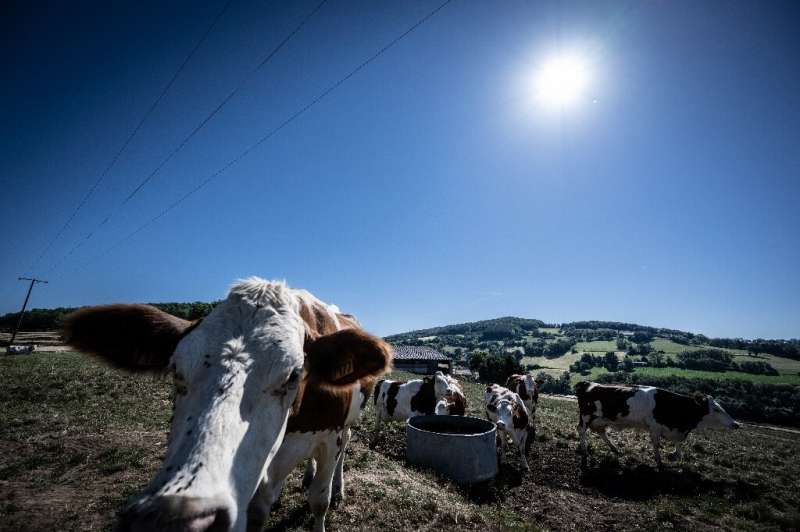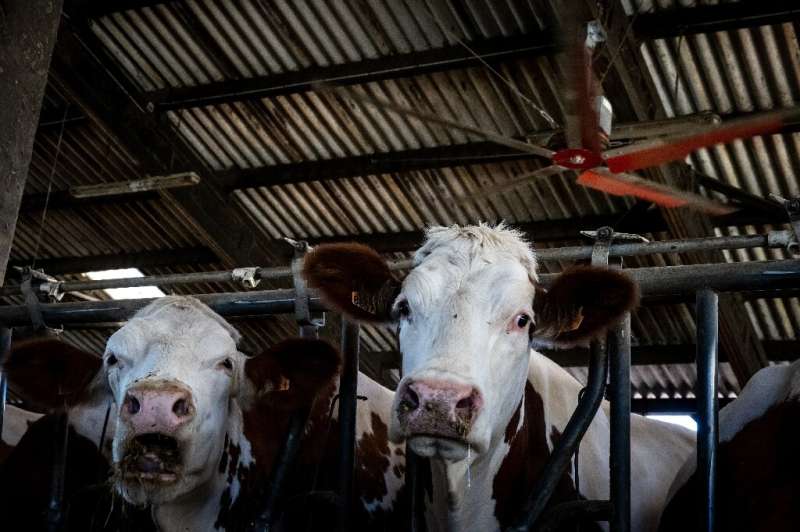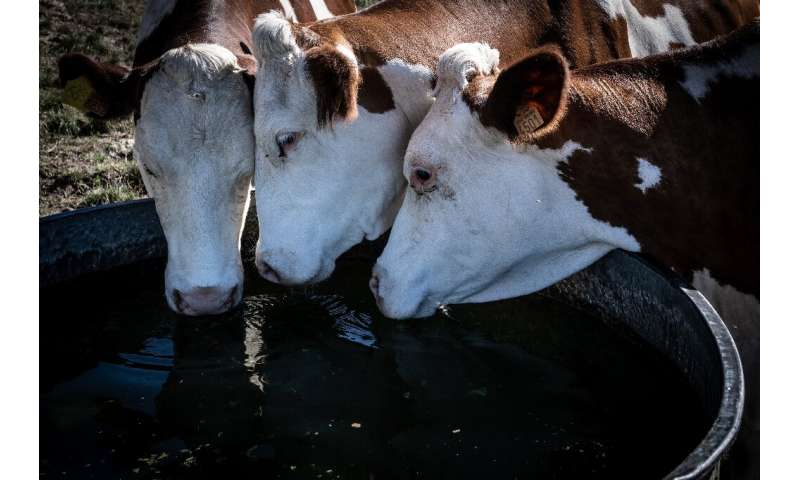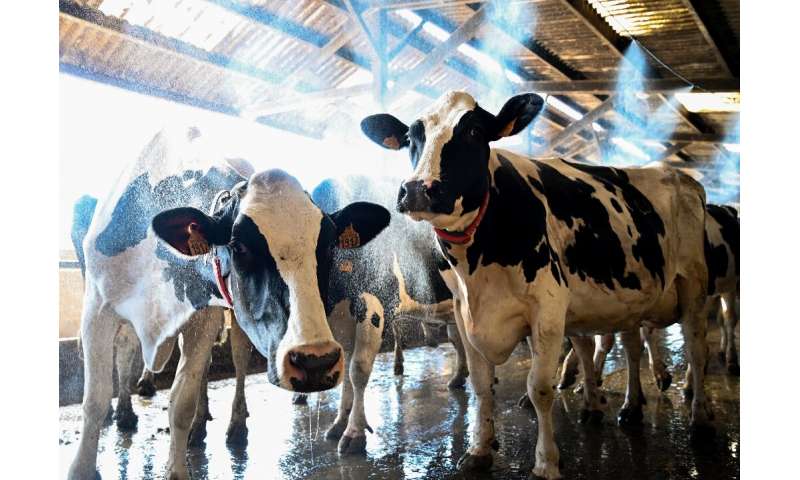French farms use huge fans to keep dairy cows cool

With new record high temperatures being set across France it isn't just humans that are suffering: even cows high in the mountains need fans to get through the heatwave.
Despite sitting at an altitude of 780 metres (2,600 feet), the mercury has climbed to 34 degrees Celsius (93 Fahrenheit) at Nicolas Joannon's farm nestled in the mountains near the eastern city of Lyon.
It's too hot for Lila, Glee, Pistachio and the rest of his herd of 35 dairy cows to spend the afternoon outside.
But thankfully for them, Joannon has installed two giant fans, measuring 4.5 meters (nearly 15 feet) in diameter, inside his barn.
They can now relax in their straw-bedded stalls under the swirling blades that bring the temperature down a few degrees.
Breeders need to constantly adapt as the climate changes, Joannon says.
"As temperatures rise, animals are under heat stress, they tend to eat less and produce a little less milk," says the 34-year-old who runs his 45-hectare (110 acres) family farm.
"But if they are put in good conditions to go through the heatwave, immediately after it's over the animals will regain their initial production level and continue to produce quality milk for consumers," he adds.

In 2020 Joannon had two fans installed at a cost of 9,000 euros ($9,000).
The fan blades start turning automatically—the hotter it gets, the faster they go.
Joannon says the cows are less lethargic since the fans have been installed.
180 litres of water per day
Dairy cows are very sensitive to temperature. Starting from 22C (71F) and 50 percent humidity, they accumulate heat in their bodies, which reduces milk production.
While each animal produces between 28 and 38 litres of milk per day, the heat can result in a two-litre daily drop.
"At 22C, a cow can adapt, but starting from 28-30C, it will suffer," says Alexandre Batia, 44, in charge of barn ventilation at Rhone Breeding Council, an association that advises breeders.
Around one in five dairy farms in the region has already installed fans in their barns, and the waiting list for the Council's help has grown.
-

Cows can drink up to 180 litres (47 gallons) of water per day. -

Cows get misted with water to cool down at a farm in northwestern France.
But fans need to compliment good practices, he says, such as feeding cows in the evening and adding extra water troughs as they can drink up to 180 litres (47 gallons) of water per day.
Bertrand Fagoo, a project manager at the French Livestock Institute (IDELE), says that until recently heat stress had only been a problem in southern France, but breeders across the country now need to adapt their practices.
For him, the installation of fans is a "secondary improvement" that has to come after making buildings more open and providing more shade.
"We shouldn't stir up hot, stale air in a closed space," says the 53-year-old researcher.
Batia says water misting animals may be another option, but it carries the risk of raising the humidity level in the building.
It is also advisable to "ventilate buildings homogeneously", he says, because "otherwise, the cows clump in the most comfortable areas, blocking the circulation and accumulating heat."
© 2022 AFP




















